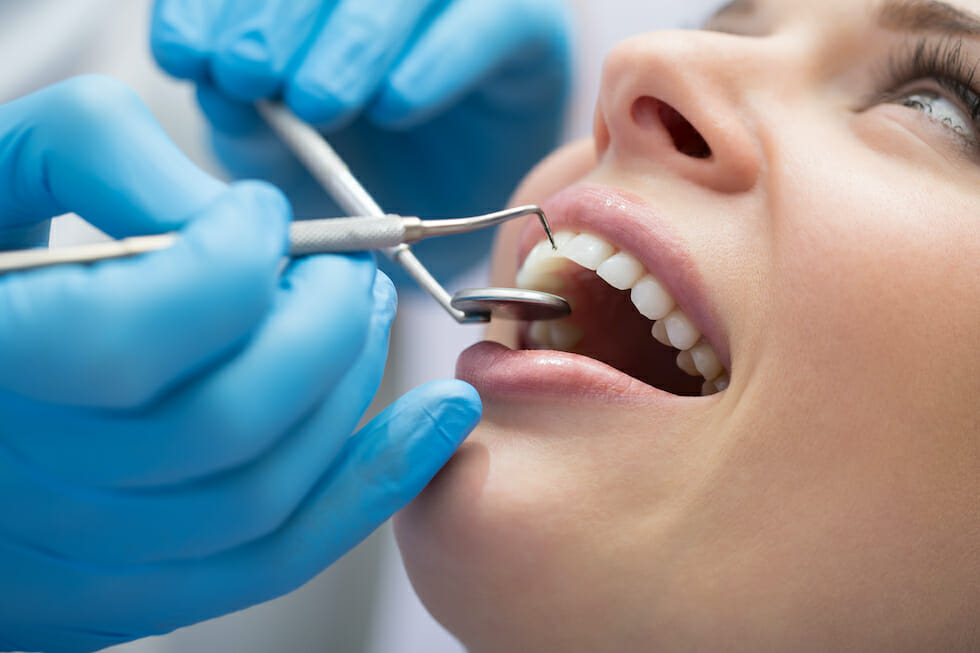You have probably seen the videos of teenagers after they get their wisdom teeth out. Their mouths are full of gauze, and they seem out of it. They can be pretty funny, with the patient loopy after their procedure, but you might wonder why they had to have the procedure in the first place. The answer is impacted wisdom teeth.
What are wisdom teeth?
Wisdom teeth are typically the last teeth to grow into your mouth around the age of 17-25, around the time you start to “become wiser,” hence the name. They come in behind your last set of molars, and for some, don’t cause a problem. For others, wisdom teeth become impacted as they start to grow and need to be removed through a simple surgical procedure.
How do I know if my wisdom teeth are impacted?
Impaction means that your wisdom teeth have not erupted through the gums properly. Signs of impaction include:
Pain and tenderness in the back of your jaw
Swelling of the gums over your impacted tooth
A bad taste in your mouth
Swollen or bleeding gums
Headache and/or swollen glands
Difficulty opening and/or closing your mouth
If you are experiencing any of these symptoms, you should contact your dentist or oral maxillofacial surgeon (OMS) right away. They will perform a thorough exam that might include x-rays to determine whether your wisdom teeth are impacted.
What are the main types of impaction?
There are four main types of wisdom tooth impaction, each with varying degrees of severity. The four types of impaction are:
Mesial impaction – this type of impaction is common and means your wisdom tooth is growing at an angle towards the front of your mouth. A mesial impaction will frequently erupt on its own without problems, but it should be monitored closely to determine if it needs to be extracted.
Distal impaction – this type of impaction is the least common. With distal impaction, the wisdom tooth grows toward the back of your mouth. If an x-ray shows that you have distal impaction, your OMS will likely watch to see if it erupts on its own. If the angle of growth is too steep, the tooth may hit your bone and become painful. In that case, we would remove it.
Vertical impaction – this type of impaction is the least concerning. It means that the tooth is pointed almost directly upwards. There is a good chance that a vertically impacted tooth will erupt on its own.
Horizontal impaction – this type of impaction is the most painful, as it means your tooth is growing in on its side and hitting surrounding tooth and bone. It is typically very uncomfortable for a patient and will not resolve on its own. Extraction is required to prevent permanent damage to the surrounding teeth and bone.
What damage can be done by an impacted tooth?
If you have an impacted wisdom tooth, it may need to be extracted during a surgical procedure. Without surgical intervention, impacted wisdom teeth can cause a lot of problems, some quite severe. If you suspect you might have an impacted wisdom tooth, you should see your dentist or OMS for an exam as soon as possible to avoid the following complications:
Tooth damage – if your wisdom tooth is impacted, it may be pushing against its closest neighbor, causing damage and increasing the risk of infection.
Crowding – pressure from an impacted tooth pushing on your nearby molar can cause crowding in the rest of your teeth and may require orthodontic treatment.
Cysts – wisdom teeth develop in a sac inside your jawbone. An impacted tooth can cause fluid to build up in the sac causing a cyst to form, leading to damage of the surrounding bone, tissue, and nerves. Rarely, a benign tumor develops and requires a complicated surgical procedure to remove the affected tissue and bone.
Decay and gum disease – if you have a wisdom tooth that is partially impacted, it will be hard to clean properly. Food and bacteria can build up in the tooth and surrounding gum and lead to decay and a gum disease called pericoronitis.
How can I prevent an impacted wisdom tooth?
While there is no way to prevent wisdom tooth impaction, your dentist or OMS can predict how your wisdom teeth may erupt. Scheduling annual dental exams is critical to keep an eye on wisdom tooth development. As you reach the age when wisdom teeth may begin to erupt, you will likely get an x-ray to see how your wisdom teeth look below the gum line. If your dentist or OMS sees early signs of impaction, they may recommend having the tooth extracted to prevent complications.
If you would like to learn more about how we handle wisdom tooth extraction at DFW Oral Surgeons, contact us today! We look forward to seeing you in our office.

